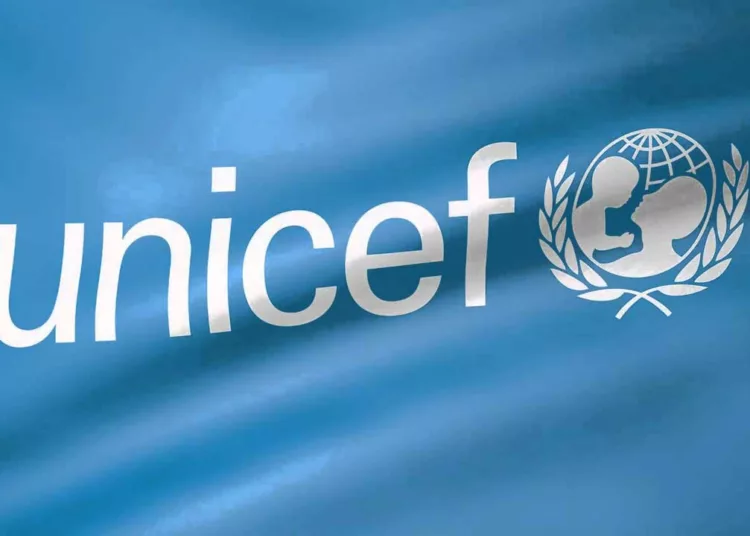UNICEF has called for intensified efforts to combat child malnutrition in northeast Nigeria.
The chief of the Borno field office, UNICEF, Dr Tushar Rane, made the call yesterday during a media dialogue and capacity-building workshop for journalists in Maiduguri, Borno State.
The event commemorated World Humanitarian Day and highlighted the urgent need for a coordinated response to the escalating malnutrition crisis affecting children in the region.
Dr Rane emphasised the dire situation in the BAY states (Borno, Adamawa, and Yobe), where approximately 2.8 million children under five, along with pregnant and lactating women, require preventative nutrition services.
“Children in BAY states are battling escalating levels of malnutrition, and they need an immediate and holistic response to address this. As you are all aware, malnutrition is a present threat affecting children already dealing with multiple vulnerabilities,” he said.
He warned that if these services are not provided, an estimated 1.7 million individuals will be at risk of acute malnutrition in 2024.
“The prevalence of global acute malnutrition (GAM) among children under five in Borno is 10.2 percent, 8.0 per cent in Yobe, and 4.0 percent in Adamawa. This translates to over 511,807 children suffering from Severe Acute Malnutrition (SAM) annually, necessitating urgent interventions,” Dr Rane stated.
He said that as the lead partner for the nutrition sector in the region, UNICEF is working alongside 46 partners, including 14 international non-governmental organisations (INGOs) and 32 national non-governmental organisations (NGOs), to deliver critical nutrition services.
He added that the organisation’s efforts have seen over 460,000 children treated for acute malnutrition across the BAY states in 2023, a 37% increase compared to 2022.
The dialogue also showcased the impact of UNICEF’s initiatives, such as the family screening approach in Banki, Borno State, which has led to the early identification and treatment of 30 percent of malnourished children.
Dr Rane also stated that the newly initiated Child Nutrition Fund (CNF), supported by the Borno and Adamawa State governments, is poised to bolster domestic financing to combat child wasting and improve overall well-being.
He highlighted the key achievements from January to July 2024, which include the provision of Vitamin A supplementation to 2.6 million children, monthly screenings for 1.5 million children under five, and treating 322,000 malnourished children.
He reiterated UNICEF’s commitment to working with government partners to prevent and treat malnutrition through integrated health, WASH, nutrition, food security, education, and child protection services while urging continued collaboration and resource allocation from the government to sustain and scale up these efforts, ensuring a better future for the children of northeast Nigeria.
Meanwhile, UNICEF Chief of Field Office in charge of Sokoto, Kebbi and Zamfara States, Micheal Juma, has frowned at the alleged diversion of nutrition supplements in some communities in Sokoto state.
Juma, who expressed this concern at the quarterly policymakers’ meeting, urged community members and stakeholders in the healthcare sector to intensify vigilance against the diversion of prepared nutrition supplements in the state.
Represented by Abraham Mahama, Juma noted that the nutrition supplements were provided by donors and distributed to healthcare centres in different communities to enhance the lives of malnourished children.
He lamented, “Some bad elements in the system connived with traders and sold the supplements to unintended persons.
“The supplements were openly sold in markets while being investigated at the designated stores. UNICEF discovered that personnel stocked cartons of supplements with stones and other objects to cover their nefarious acts.
“Indices on healthcare Infrastructures, power and water supply, competent healthcare workers, and clients not trusting service providers along with others were not encouraging in the state.
In his presentation, the UNICEF Social Protection Specialist, Mr Isa Ibrahim, dwelled on the state’s 2024 budget performance areas that need alignment, such as the nutrition sector, which recorded zero allocation, and some areas recorded a high concentration of capital expenditure, which has less impact on the citizens.
Earlier, the Sokoto State deputy governor, Idris Gobir, assured of government maximum support to all donor agencies’ activities, describing the presentations as an awakening call to government officials to amend anomalies.





